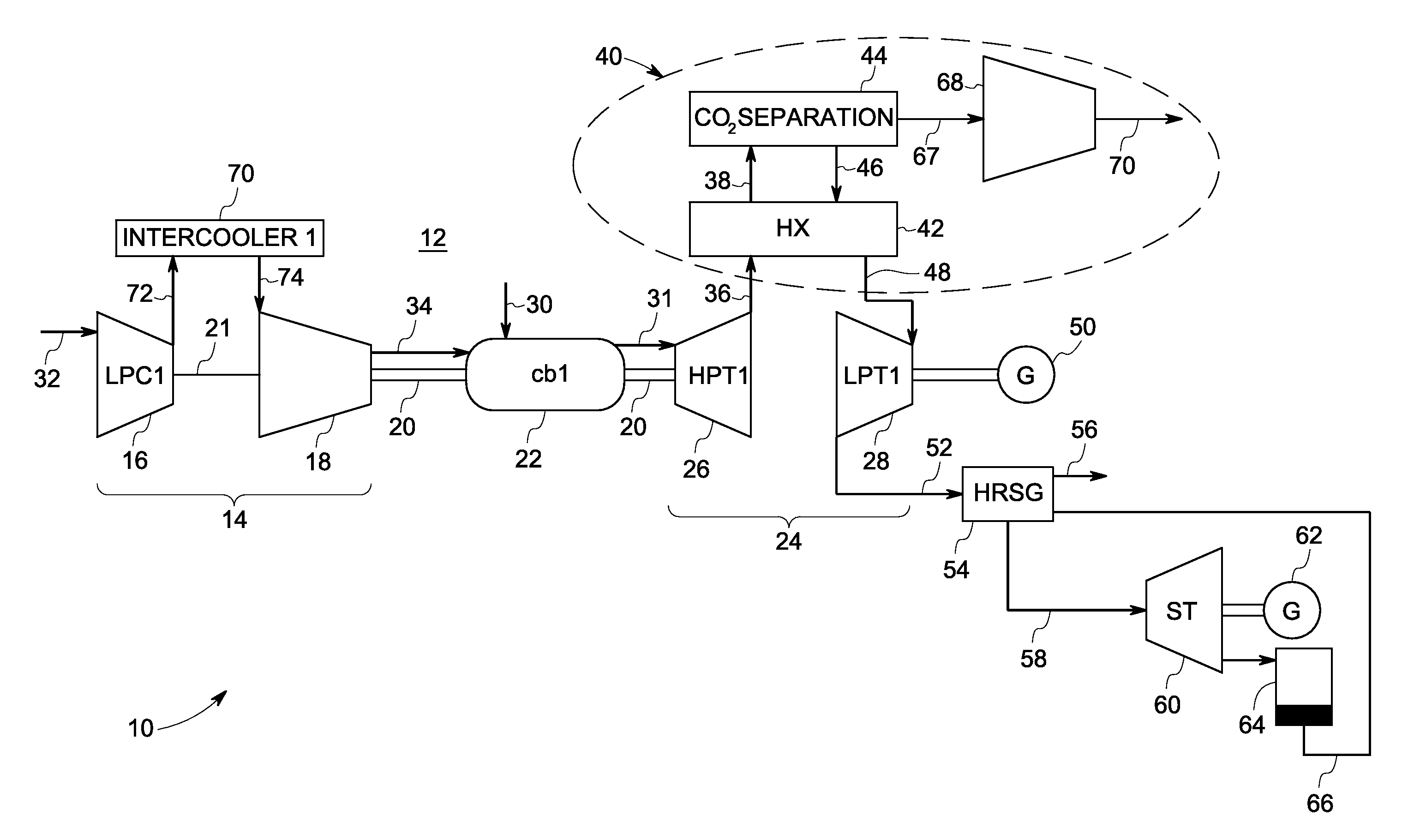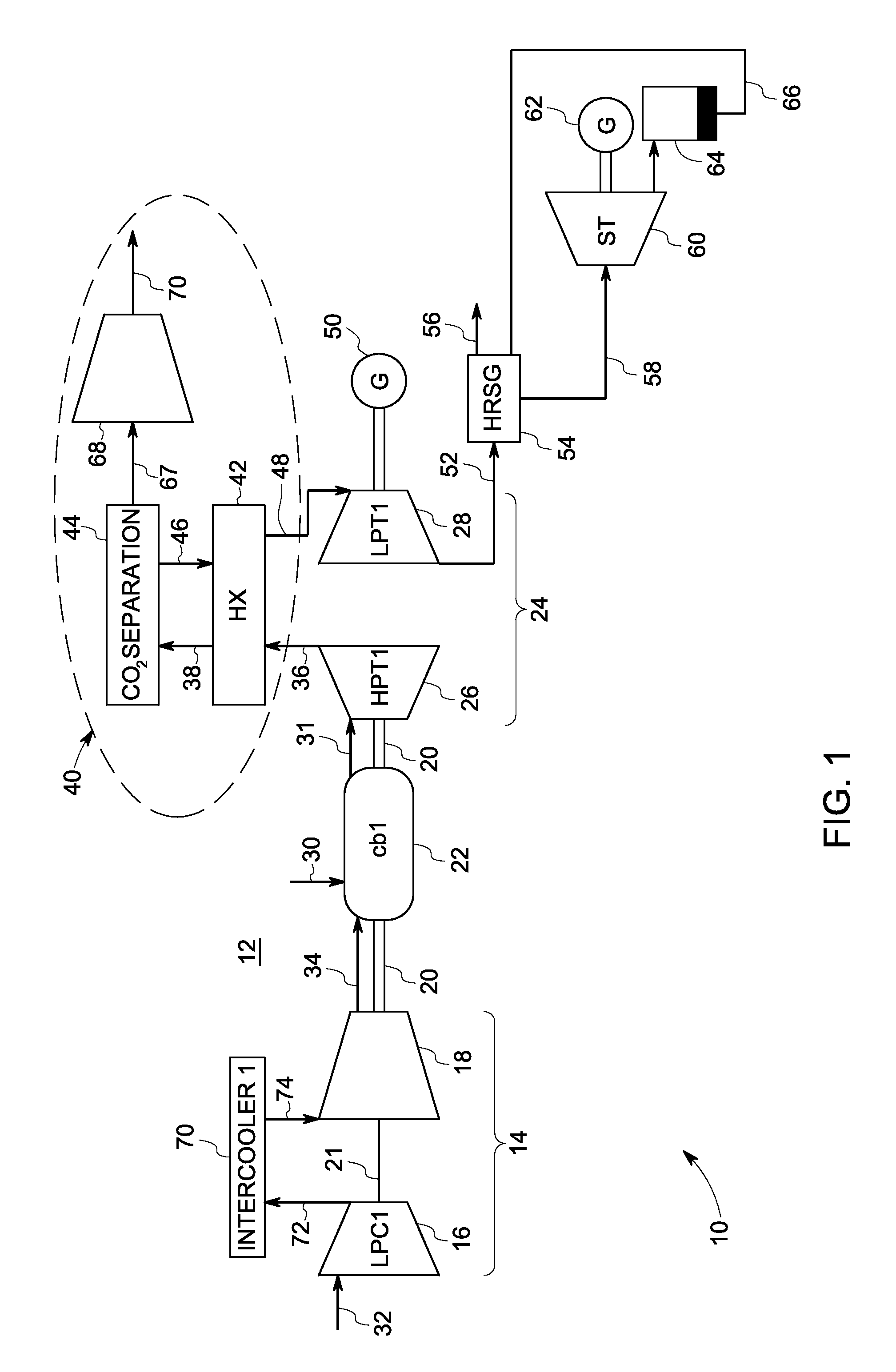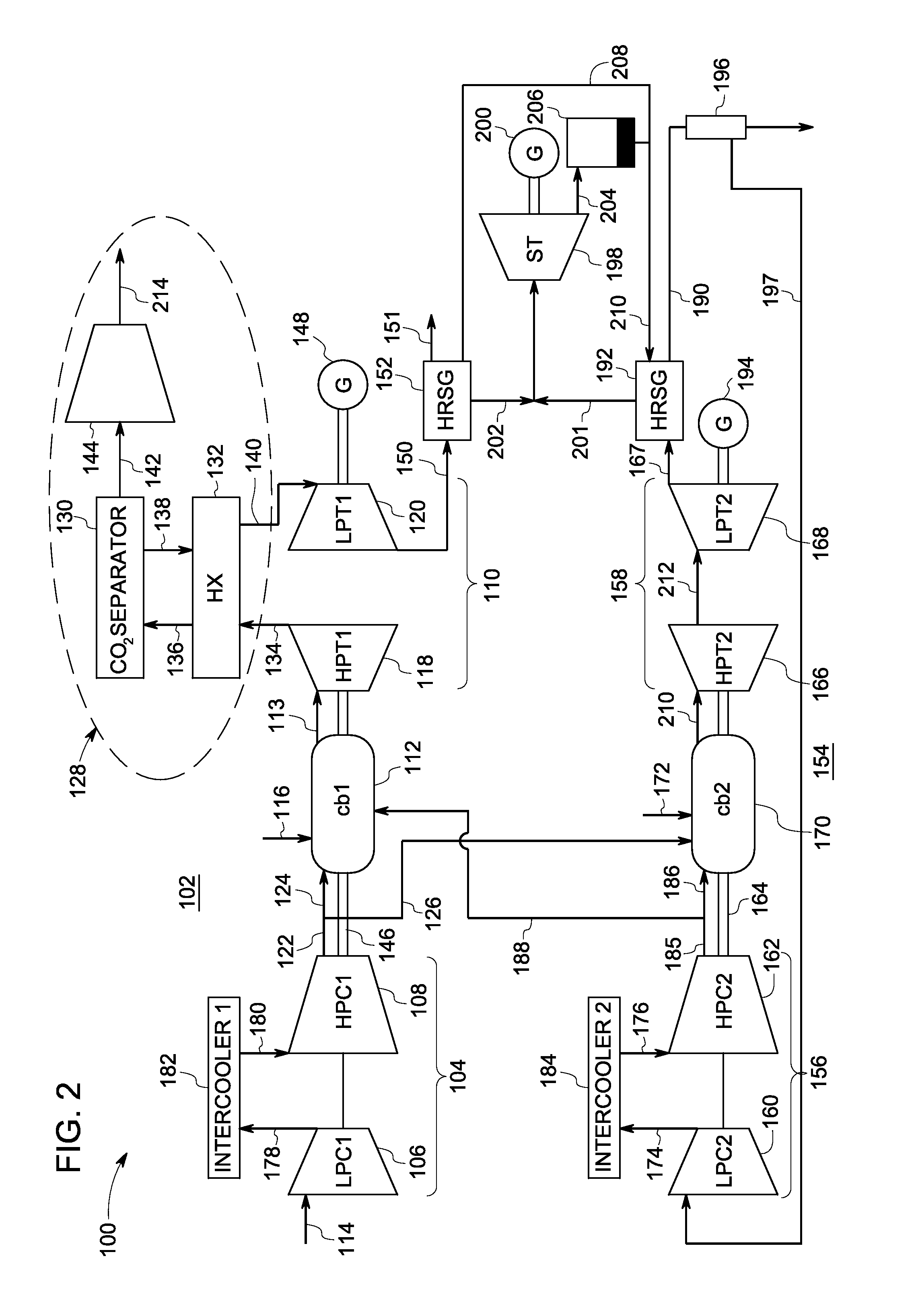Systems and methods for power generation with carbon dioxide isolation
a technology of power generation system and carbon dioxide, which is applied in the direction of electric generator control, machine/engine, separation process, etc., can solve the problems of large and expensive devices for removing cosub, low partial pressure, and generally not economical
- Summary
- Abstract
- Description
- Claims
- Application Information
AI Technical Summary
Benefits of technology
Problems solved by technology
Method used
Image
Examples
Embodiment Construction
[0014]The present disclosure provides a process for lowering CO2 emissions by separation of CO2 at high pressures in a power plant that utilizes gas turbines for power generation. CO2 is removed from the exhaust gases from the CO2-rich flue gas mid-way through the expansion pathway of a gas turbine. As the concentration and partial pressure of CO2 is increased, a lower energy penalty is observed to remove the CO2.
[0015]One embodiment of the present invention provides for two or more exemplary gas turbine systems operating in a power generation system to share a common supply of compressed oxidant. As a result, compression capacity can be freed in one or more of the turbine systems to be employed in the recovery of carbon dioxide (CO2) generated by one or more of the turbine systems. In one example, a compressor in a first turbine system supplies oxidant (via conduits) to a combustion chamber in the first turbine system and also to a combustion chamber in a second turbine system, fre...
PUM
 Login to View More
Login to View More Abstract
Description
Claims
Application Information
 Login to View More
Login to View More - R&D
- Intellectual Property
- Life Sciences
- Materials
- Tech Scout
- Unparalleled Data Quality
- Higher Quality Content
- 60% Fewer Hallucinations
Browse by: Latest US Patents, China's latest patents, Technical Efficacy Thesaurus, Application Domain, Technology Topic, Popular Technical Reports.
© 2025 PatSnap. All rights reserved.Legal|Privacy policy|Modern Slavery Act Transparency Statement|Sitemap|About US| Contact US: help@patsnap.com



